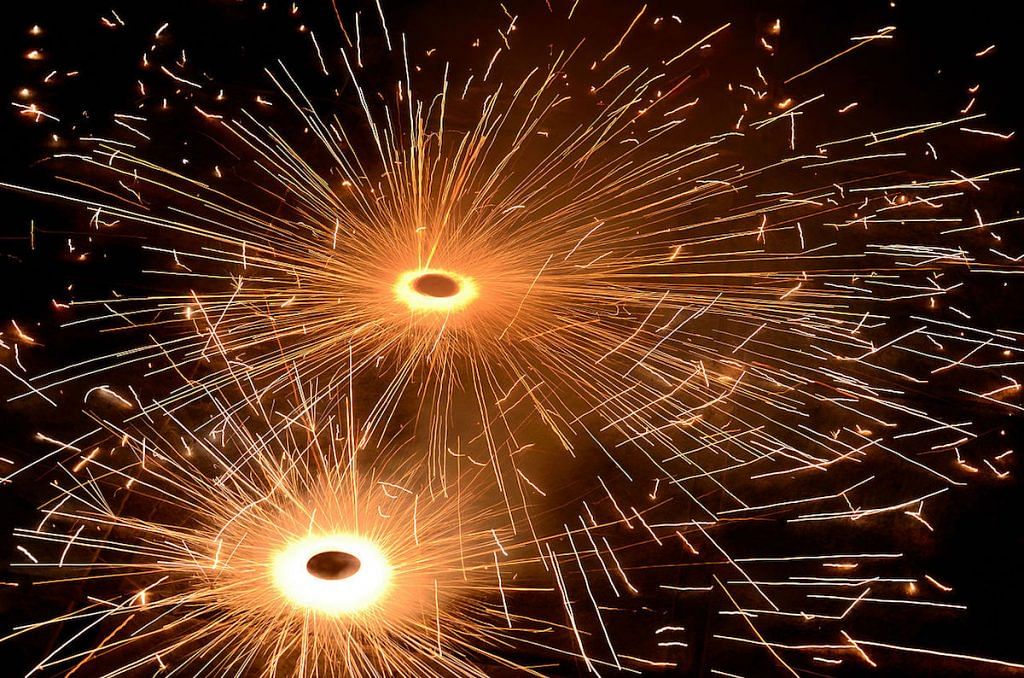Instead of calling the Supreme Court fireworks ban in NCR ahead of Diwali ‘anti-Hindu’, let’s revisit the tradition of ‘vasudhaiva kutumbakam’.
For those peddling ‘Hinduism’ to oppose the Supreme Court ban on the sale of firecrackers, I have this to say: please stop.
I am a practicing Hindu who waits for Diwali all year round. It is my favourite festival, and it has always meant new clothes, time with family and friends, preparing and devouring poori-sabzi and kheer, making rangoli, praying to Laxmi, exchanging gifts, and a lot of laughter. It is the ‘festival of lights’, not the festival of loud noises and pollution.
It’s thanks to firecrackers that the joy got sucked out of one past Diwali for me – my husband lit a blue ‘atom bomb’ and a hot piece of shrapnel struck me under the eye, sparing me blindness but scarring me for life. Till date, I am so terrified of crackers that I don’t even attend marriages because there will be fireworks.
Duty of the citizen
Let’s talk about the Supreme Court order: the petition the court ruled on was not specific to fireworks – it was a wide-ranging one also seeking relief against crop burning, malba dumping, and other steps towards a purer environment. It prayed to ban fireworks for one Diwali. And I have always believed that Delhi-wallahs are big-hearted enough to make that little concession.
The court, in its order, said it is “…the duty of the state to ensure a healthy environment in terms of Article 48A of the Constitution of India as well as the duty of the citizens to ensure the same under Article 51A(g) of the Constitution”. It also said: “There is virtually a consensus in the society that crackers should not be burnt during Diwali, which can be celebrated with equal fervor by various other means as well… It is one of the functions of the judges, in a democracy, to bridge the gap between law and society. Here, fortunately, there is no such gap, and the court is only become facilitator in invoking the law to fulfill the need of the society.”
Last Diwali, the Supreme Court had directed schools, NGOs and the authorities to take steps to promote a ‘Green Diwali’. My seven-year-old niece didn’t even touch a phuljhari, informing us that she was observing a Green Diwali. This is a child who suffers from a respiratory problem, and needs a nebuliser to be able to breathe the smoky air around Diwali.
Vasudhaiva kutumbakam
To those trying to give a religious twist to this ban, Diwali has gone far beyond just ‘Hindus’. It’s a pan-India festival. A fellow Supreme Court advocate, who happens to be Muslim, was complaining to me after the ban: “My children are so disappointed they can’t burn crackers this year. This is what they wait for all year round with so much enthusiasm.”
So, instead of giving the argument that the court order is a ‘knee-jerk reaction’, that the ‘ban should have been imposed in phased out manner’, ‘when you ban, the citizenry becomes defiant’, or the ‘war against Hinduism’ tripe, consider this.
It is one Diwali where we have the chance to uphold the Hindu tradition of vasudhaiva kutumbakam (the world is one family). Let’s stick to that, and do away with the prevalent tradition of ‘me before you’.
The writer is Advocate-on-Record, Supreme Court of India
